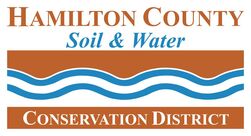Vegetables for Alkaline Soils
Most vegetables like soils with a pH between 6.5 and 7.0. But your soil may be more alkaline. Alkaline soils have a pH of 7.0 or higher. What can you grow in alkaline soils? Below is a list:
Vegetables for Alkaline Soils
What is pH?
"Soil pH is the measure of the acidity (sourness) or alkalinity (sweetness) of a soil." (University of Vermont Extension) Soil pH measures on a numerical scale that goes from 0.0 to 14.0. A soil pH of 0.0 is the most acidic while 14.0 being most alkaline. A soil pH of 7.0 is neutral.
How pH Works and What it Tells You
Soil pH measures how much hydrogen relative to how much calcium, magnesium, potassium, sodium, and aluminum are in the soil. (Garden Rant) When there is more hydrogen the soil is acidic (lower pH). Whereas the more of the other nutrients the more alkaline (higher pH) the soil will measure.
Soil pH influences plant growth through several factors. Those factors include soil bacteria, nutrient leaching, nutrient availability, toxic elements, and soil structure. These factors have equal importance. Yet, many gardeners tend to focus on nutrient availability.
A soil pH in the right zone for a plant will make nutrients available to that plant. If there are nutrients, but the pH is too high or low, the plant will not be able to absorb the nutrients. Or, it could mean that there are not enough nutrients like those mentioned above in the soil.
Testing Your Soil pH
Due to the factors that influence pH and the needs of your plants, it is best to have a lab quality soil test. A lab quality soil test will tell you what nutrients you have in your soil including the pH. This method is ideal. There are also simple pH meters available at most garden centers.
Click here to learn more about how to do a soil test.
Changing the pH of Your Soil
Soil chemistry and biology is both simple and complex. Thus, changing the pH can be simple or complex. If your soil is too acidic, a common way to raise the pH is by adding lime. Lime is short for limestone. But there are different kinds of lime. If it is too alkaline, one common method is by applying sulfur. But there are also different kinds of sulfur. To know how much to add, and of what kinds of lime or sulfur, you need to test the pH of your soil. Adding too much can cause imbalances. A basic rule to follow is to start by adding a little and retesting year to year.
A soil test, which measures more than pH, is the best way to determine what your soil needs. Click here to learn more about how to do a soil test.
Sources
The Old Farmers Almanac
University of Vermont Extension
Vegetables for Alkaline Soils
- Asparagus (6.0-8.0)
- Beans, pole (6.0-7.5)
- Beet (6.0-7.5)
- Brussels Sprouts (6.0-7.5)
- Cauliflower (5.5-7.5)
- Garlic (5.5-8.0)
- Kale (6.0-7.5)
- Pea, sweet (6.0-7.5)
- Pumpkin (5.5-7.5)
- Spinach (6.0-7.5)
- Crookneck Squash (6.0-7.5)
- Tomato (5.5-7.5)
What is pH?
"Soil pH is the measure of the acidity (sourness) or alkalinity (sweetness) of a soil." (University of Vermont Extension) Soil pH measures on a numerical scale that goes from 0.0 to 14.0. A soil pH of 0.0 is the most acidic while 14.0 being most alkaline. A soil pH of 7.0 is neutral.
How pH Works and What it Tells You
Soil pH measures how much hydrogen relative to how much calcium, magnesium, potassium, sodium, and aluminum are in the soil. (Garden Rant) When there is more hydrogen the soil is acidic (lower pH). Whereas the more of the other nutrients the more alkaline (higher pH) the soil will measure.
Soil pH influences plant growth through several factors. Those factors include soil bacteria, nutrient leaching, nutrient availability, toxic elements, and soil structure. These factors have equal importance. Yet, many gardeners tend to focus on nutrient availability.
A soil pH in the right zone for a plant will make nutrients available to that plant. If there are nutrients, but the pH is too high or low, the plant will not be able to absorb the nutrients. Or, it could mean that there are not enough nutrients like those mentioned above in the soil.
Testing Your Soil pH
Due to the factors that influence pH and the needs of your plants, it is best to have a lab quality soil test. A lab quality soil test will tell you what nutrients you have in your soil including the pH. This method is ideal. There are also simple pH meters available at most garden centers.
Click here to learn more about how to do a soil test.
Changing the pH of Your Soil
Soil chemistry and biology is both simple and complex. Thus, changing the pH can be simple or complex. If your soil is too acidic, a common way to raise the pH is by adding lime. Lime is short for limestone. But there are different kinds of lime. If it is too alkaline, one common method is by applying sulfur. But there are also different kinds of sulfur. To know how much to add, and of what kinds of lime or sulfur, you need to test the pH of your soil. Adding too much can cause imbalances. A basic rule to follow is to start by adding a little and retesting year to year.
A soil test, which measures more than pH, is the best way to determine what your soil needs. Click here to learn more about how to do a soil test.
Sources
The Old Farmers Almanac
University of Vermont Extension
